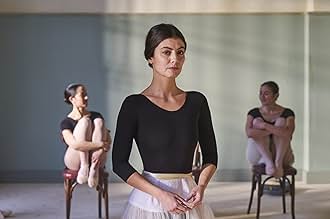Alessandra Mastronardi always looked weird to me. Her role in that Woody Allen film was probably the best that fit her features both physically and in spirit. Not that I expect female actors to have a plastic kind of appeal -which Mastronardi in her own way already has- but there is something off with the overall vibe.
Well... The title role in this biopic seems to work fine with her as the aura of the film is as ambiguous as the lead actor's on-screen charisma. So, this probably is not a production where she was miscast.
In other words, things are okay on that front.
However, the film is shot in such a manner that, if you are not really into the world of ballet, there is little to honeycomb you into the narrative. Neither visually, nor via the usage of music or acting.
Remember those paintings and sketches by Edgar Degas - they touch your soul in such a manner that, you breathe ballet regardless of your knowledge of or interest in the field.
This film is not to cinema what Degas' work was to art. I just don't see how or if they even tried to outgrow the subject matter. I have seen documentaries that carried more tension, emotion and enigma than this one, which by classification is fiction.
So, one may get bored before one begins to care about what will happen.
Even if you are really really into ballet, you might watch Billy Elliot or Aronofsky's Black Swan a 7th time before finishing this just once.



























